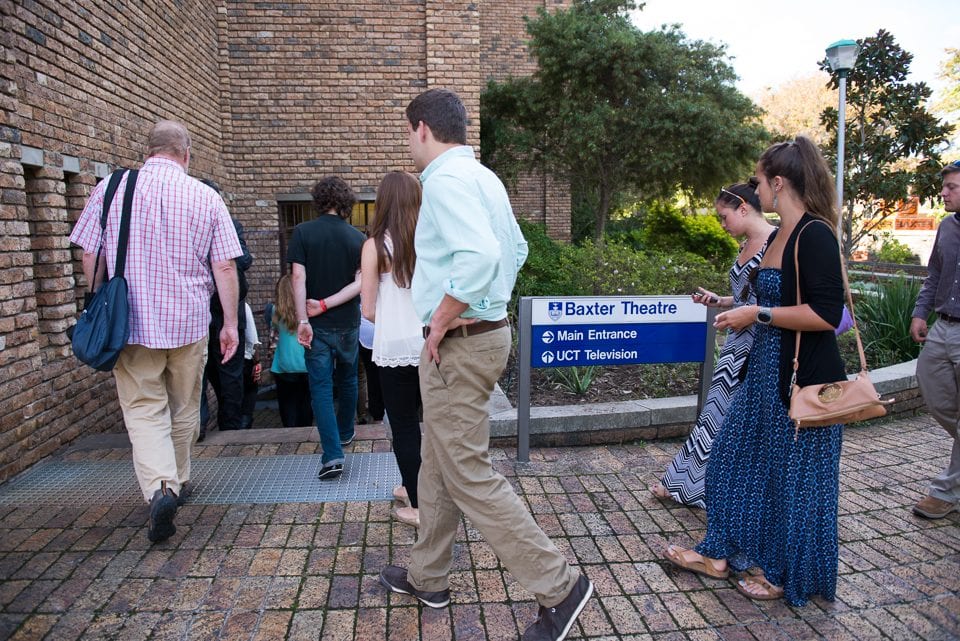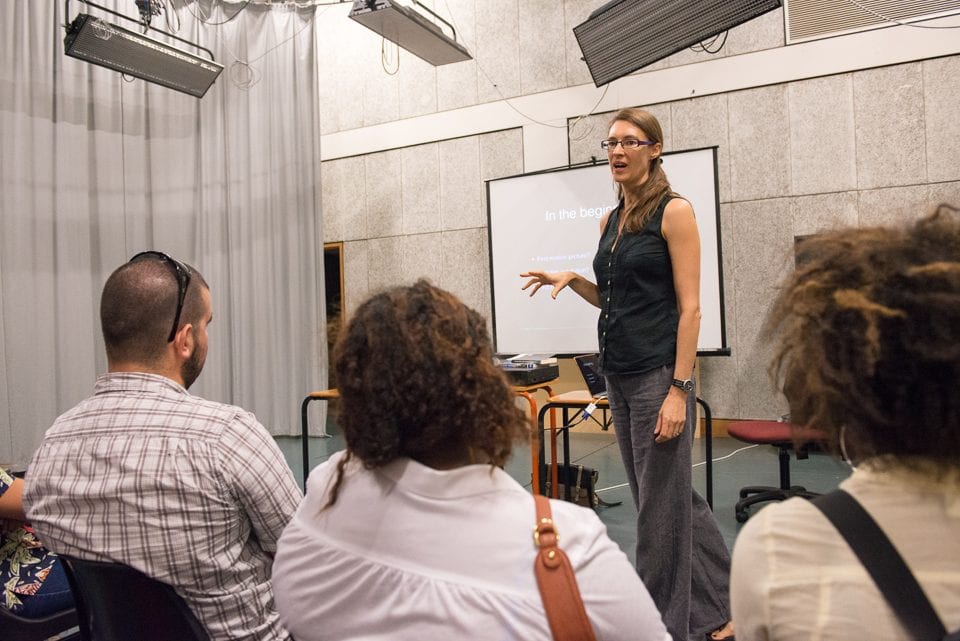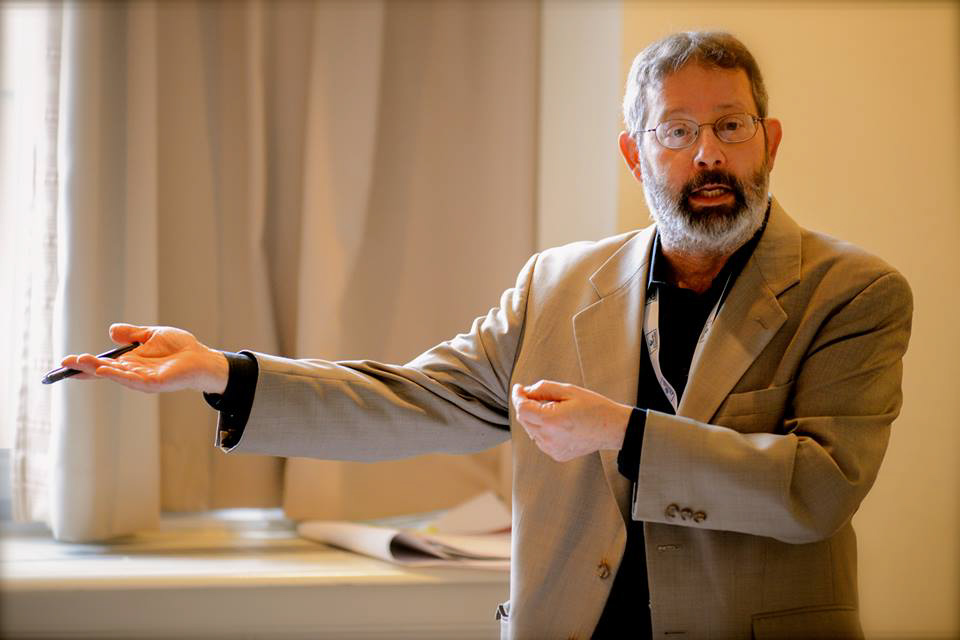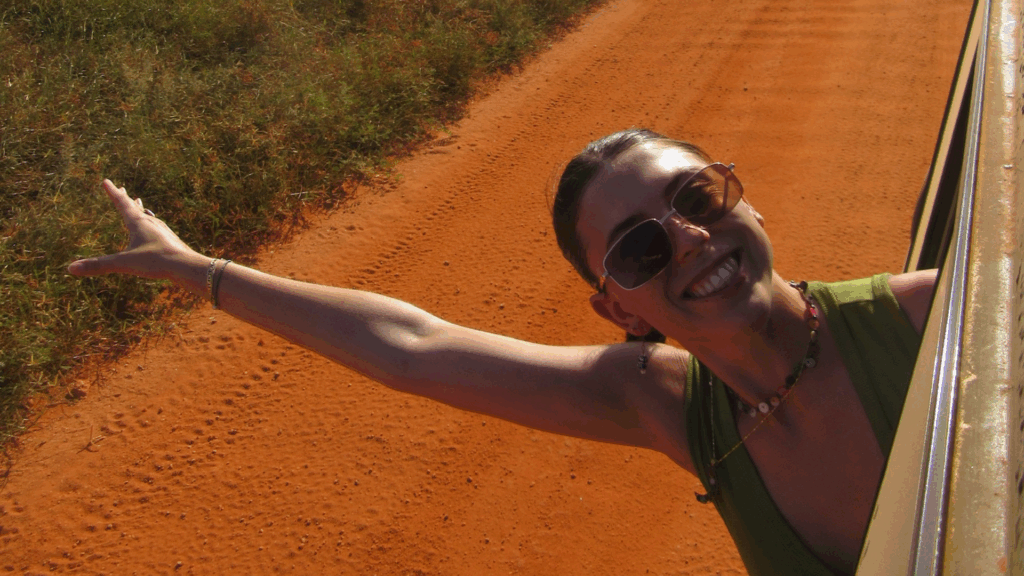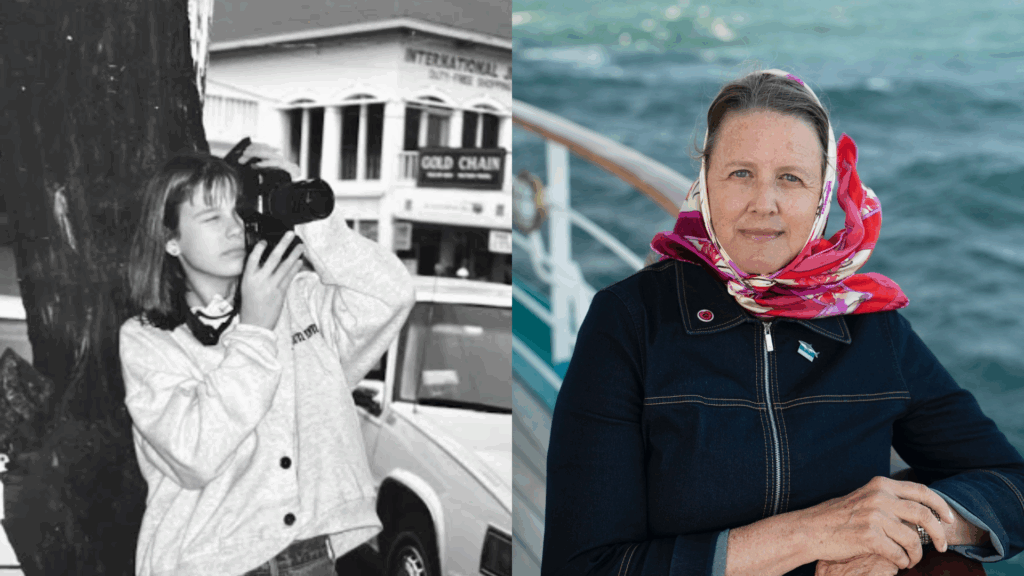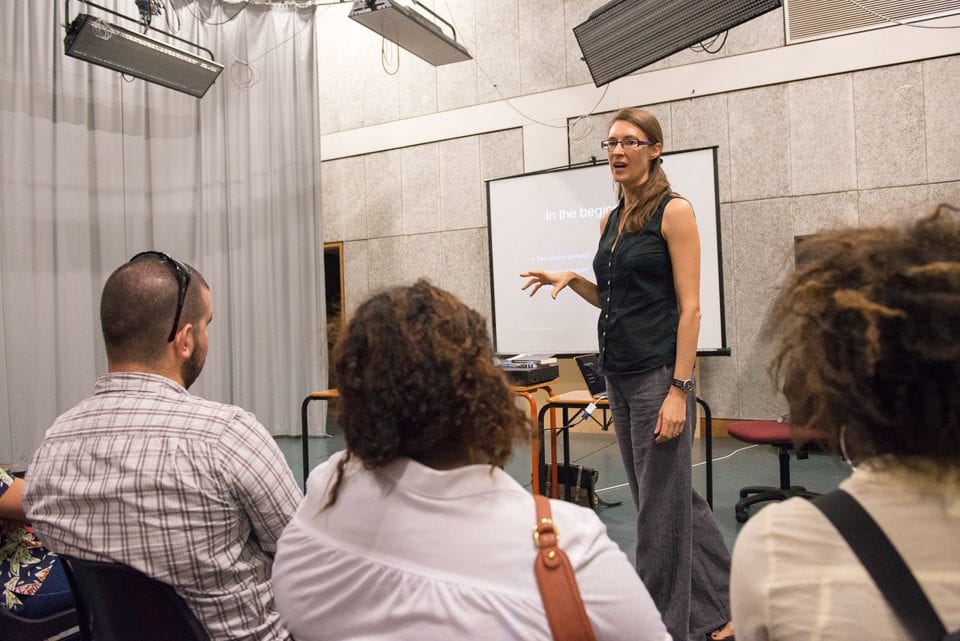
The smell of popcorn wafted through the air as students in Professor Kandioura Drame’s African Cinema class filed into a small, narrow screening room at the Labia Theatre in central Cape Town. The students were at South Africa’s oldest independent art-repertory movie cinema to watch Felix, a recent coming-of-age movie filmed and edited in Cape Town, before heading to the University of Cape Town to learn about the history of South African cinema.
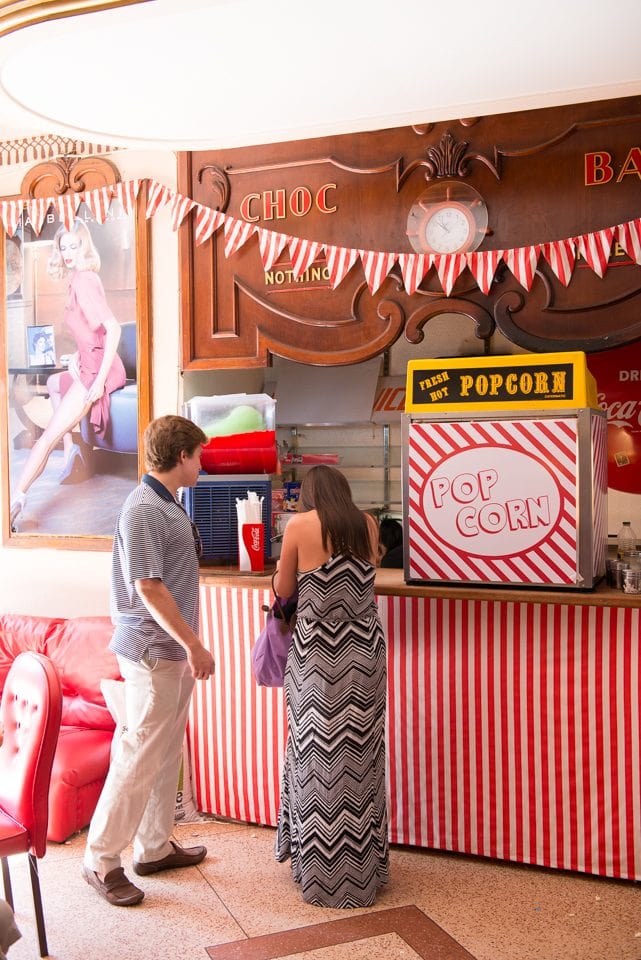
Traveling from Cape Town’s City Bowl into the lush southern suburb of Rondebosch, the class arrived at UCT’s lower campus to visit the TV studio, housed in the basement of the Baxter Theatre. The studio, built to BBC specifications, is used by various production companies and is the home to UCT’s Center for Film and Media Studies. The class was greeted by Dr. Liani Maasdorp, Lecturer in Screen Production and Film and Television Studies, who gave the students a tour of the facility before explaining the history of South African cinema and facilitating a discussion about the film Felix.
Dr. Maasdorp pointed out to the class that cinema has a long history in South Africa. In fact, the first motion picture screening in South Africa occurred the same year that the first motion picture screening happened in the world, in 1895 by the Lumi√®re brothers in Paris. “So our film industry started pretty much when film started. We were shooting films and exhibiting films before 1900 in South Africa. And then there was a massive crash.” The massive crash she referred to was the years the country spent under apartheid, a system of racial segregation enforced by the ruling National Party from 1948 to 1994.
Scott Head, a double major in Film Studies and Psychology at Vanderbilt University, thought that it was interesting to see how the regime effected South African film and cinema. “I learned about the tight control and censorship over what could be shown in theaters during apartheid. Films showing nudity, excessive violence, interracial relationships, or black or colored people in high positions were banned. South Africa couldn’t tell their own South African stories. Instead, most films during this time were limited to non-fictional propaganda, ethnographic, travel, and nature films. Even within these dry, non-controversial films, production and screenings were segregated along racial lines.”
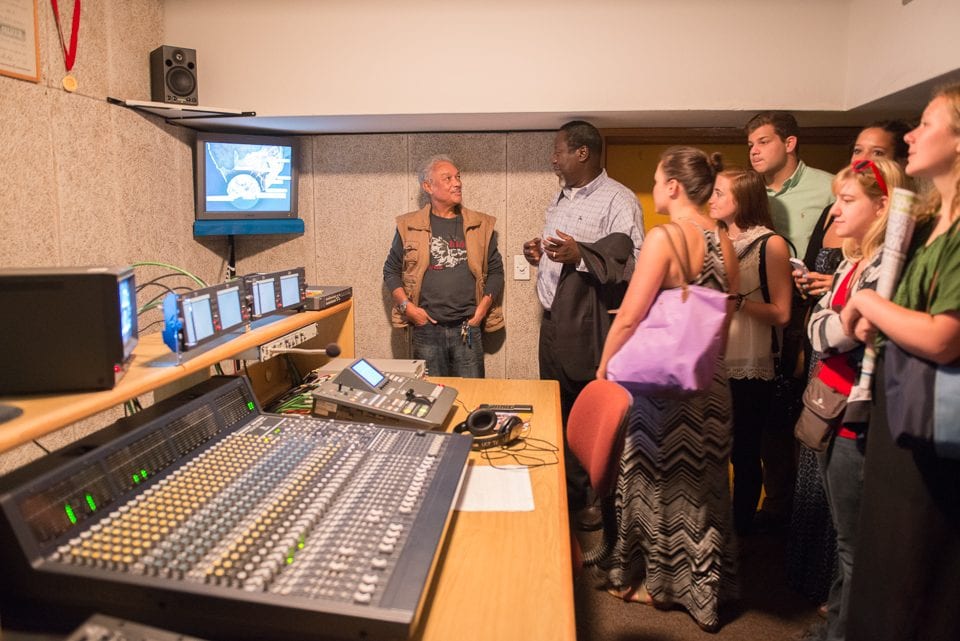
After apartheid was dismantled, South African cinema went through a period of rejuvenation and experimentation. Filmmakers had to rediscover their voice and learn how to tell the many different stories of what it means to be South African. Dr. Maasdorp explained how film in other African countries tends to have more of a European aesthetic whereas South African film has looked to English and American films which have more traditional narrative structures, such as that of the movie Felix. She showed the students trailers from films that embodied the transformational period followed by recent films.
William DeSena, a film major from the University of Colorado at Boulder, didn’t know much about South African cinema before the field lab, but said, “I was amazed at some of the trailers shown and how well done they were, especially Otelo Burning. It seems that people in South Africa are very interested in film and are taking advantage of the art to tell their stories.” Professor Drame’s echoed the sentiment, “With the current creative rhythm, my impression is that South African cinema is headed for great accomplishments in the near future.” The class left UCT with a deeper knowledge of South African cinema and a list of films to explore upon returning home.
